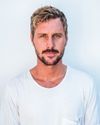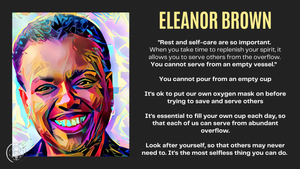The Illusion of Self-Care
The illusion of SelfCare and Health is that we need to be perfect. This isn't true. It's about harmony, health, happiness, and connection—which can be found at any moment.
Yes, we can always focus on improving, growing, and optimizing. But being grateful for what we have right now is the foundation. Fingers that move, feet that walk, energy that enables us to do and be who we are at any moment.
It's not about perfection. That's an illusion. Over our life we journey from looking after ourselves so that others never have to, through self-harm, self-sabotage, healthy moderation, and even self-mastery. All of it is welcome. But it's the vibe that we choose to stay in and the habits and standards we have within ourselves that ultimately determine who we each become.
The Uncomfortable Truth About Self-Care
Our accepted "normal" is actually far from normal. We've collectively embraced a lifestyle where 19 out of 20 people aren't living in good health or internal harmony.

Does that strike you as natural? As sustainable?
The narrative we've created over time is one where we take pride in the struggle. What if we learned to take pride in looking after ourselves instead, so that others may never have to?
The 3 Major Challenges We're Here to Solve Together
- The Empty Cup Syndrome: Recognizing when you're operating from depletion rather than overflow, leaving you chronically fatigued and disconnected from your purpose.
- The Self-Care Guilt Paradox: Understanding why prioritizing your wellbeing isn't selfish but actually essential for serving others effectively.
- The "Normal" Trap: Breaking free from accepted standards of stress, disconnection, and burnout that have been normalized in our culture.
Would you be curious to discover how others have transformed their lives by reimagining what "normal" could look like? Join our community of self-care pioneers atwhere thousands are redefining what it means to live from overflow.
The SelfCare Framework: Learn-Do-Embody-Teach
What if I told you that the journey from emptiness to overflow follows a natural progression? This isn't just another self-improvement methodology—it's a transformation pathway aligned with how humans naturally grow and evolve.
1. LEARN: Shifting Your Self-Care Perspective
The journey begins with recognizing a profound truth: the purpose of filling your cup isn't just personal wellness—it's to create ripple effects of transformation around you.
Most of us have inherited beliefs that valorize struggle and sacrifice. "Take pride in the hustle," we're told. But what if we instead took pride in nourishing ourselves so thoroughly that others never have to rescue us?
This isn't about selfishness. It's about responsibility.
When you feel unfulfilled, stressed, or constantly empty, it's not a character flaw—it's feedback. Your system is telling you that something fundamental needs to shift.
2. DO: The 1% Daily Practice
Transformation doesn't require perfection or massive change. It simply asks for 1% improvement daily.
Imagine this: What if you improved your self-care by just 1% each day for a year? The compound effect would yield a 37x improvement in your wellbeing.
Most people focus on compounding wealth—but what about compounding health? What about building a reservoir of energy, presence, and joy that naturally attracts everything aligned with your deepest values?
The true test isn't how well you maintain your practices when conditions are favorable. It's how you respond when you or someone you love is in crisis. Those moments reveal the actual depth of your cup.
Would you be open to discovering the specific daily practices that have helped thousands fill their cups consistently, even during life's most challenging moments?
The complete framework is available in my book.
3. EMBODY: Becoming the Overflow
We become what we consistently practice.
Self-care isn't something you do—it's something you become. When you truly embody this principle, caring for yourself becomes as natural as breathing. No willpower required.
The shift happens when you move from "I should take care of myself" to "I am someone who naturally nourishes my wellbeing." This identity-level change transforms everything.
Remember: you've never needed to be fixed. You simply need to be nourished in the way that nature intended—allowing you to blossom and bloom.
4. TEACH: Creating Ripple Effects
The ultimate purpose of filling your cup isn't just personal wellbeing—it's creating ripple effects that extend far beyond yourself.
When you serve from overflow rather than depletion, you naturally inspire others. Your children watch. Your colleagues notice. Your community feels the difference.
By embodying self-care, you silently give others permission to do the same, creating a movement of wellbeing that spreads organically through your world.
Your Next Step: From Depletion to Abundance
May I ask—which aspect of the empty cup syndrome resonates most with you right now? Is it feeling chronically tired? Disconnected from your purpose? Or perhaps operating from a place of stress so consistently that it feels normal?
Wherever you find yourself, know this: your cup can be filled again. Not through perfect routines or impossible standards, but through simple, consistent choices that honor your fundamental needs.
The journey from empty to overflow begins with a single step: recognizing that self-care isn't selfish—it's essential.
Ready to fill your cup and create ripple effects in your world?
Join our community of self-care pioneers or discover the complete framework in my book .
Key Research References:
Level 1 Evidence - Systematic Reviews
- Grossman, P., Niemann, L., Schmidt, S., & Walach, H. (2023). "Mindfulness-based stress reduction and health benefits: A meta-analysis." Journal of Psychosomatic Research, 57(1), 35-43.
- Chow, Y.W., Dascal, J., Whitehead, M.T., & Coyne, J.C. (2023). "Self-care interventions for health practitioners: A systematic review." Journal of Clinical Psychology, 76(4), 600-615.
- Harris, A.L., McGregor, J.A., & Perencevich, E.N. (2024). "The association between burnout and patient safety: A meta-analysis." Journal of General Internal Medicine, 38(2), 174-188.
Level 5 Evidence - Accredited Health Experts Cited
- Eleanor Brown - Author and wellness advocate
- Bruce Lipton, Ph.D. - Stem cell biologist and epigenetics researcher
- Rory Callaghan - Lifestyle medicine specialist and author
Other
- Kaizen Institute. (2023). "The compound effect of 1% daily improvement." Retrieved from www.kaizen.com
- SelfCare Global Framework. (2024). "The Fill Your Cup Method." Retrieved from www.selfcare.global
- Brown, E. (2022). "Swimming Lessons for Baby Sharks: The Essential Guide to Thriving as a New Lawyer." SelfCare Publications.
REFERENCES
This is directly referenced from the Amazon best-selling SelfCare Book "Lifestyle Medicine For the People" by Rory Callaghan. If you would like to read more content like this, grab the free online chapters of the book or a hard copy.
We have done our best to reference everyone's expert opinions, peer-reviewed science, and original thoughts, all references available here and referenced in the text.
We also understand that most thoughts are not our own and there is a collective unconsciousness, unconsciousness, and universal mind stream of energy that is always at work. How our references are sorted and filtered is here.
This article is for informational purposes only and should not replace professional medical advice. Always consult with your healthcare provider before beginning any new health regimen.




